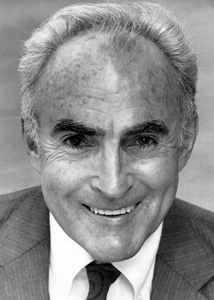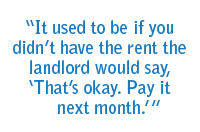 Stage, film, and TV actor Page Johnson was born in West Virginia in 1922, where he made his tap-dancing debut in the local movie theater at age 12. He has appeared with Olivia DeHaviland, Richard Burton, Anthony Perkins, Jason Robards, and Coleen Dewhurst, among others. A resident of Grove Street since 1950, Johnson can still be seen riding his bicycle around the West Village.
Stage, film, and TV actor Page Johnson was born in West Virginia in 1922, where he made his tap-dancing debut in the local movie theater at age 12. He has appeared with Olivia DeHaviland, Richard Burton, Anthony Perkins, Jason Robards, and Coleen Dewhurst, among others. A resident of Grove Street since 1950, Johnson can still be seen riding his bicycle around the West Village.
Growing up in a small, coal-mining town in West Virginia, Page Johnson always longed to escape. “My father got a job in a town called Welch and started a family,” Johnson recalls. “My mother hated it because she was a very beautiful woman as well as an upscale lady. She ran off with a charming salesman from St. Louis when I was six. I never saw her again. It was like an Ida Lupino movie! I don’t blame her, though. She hated the coalmines and she wanted to get out. Just like me. When I was three I said I wanted to get out of that town. And thanks to my family’s encouragement, I eventually did.”
Johnson attended Ithaca College in New York in 1940, where he studied drama. “We only had money enough for a year’s tuition, which was $400,” he says. “Then the next year I got a scholarship just as the war broke out. I joined the Marine Corps and spent four years with them. I was in Pearl Harbor after it was bombed and then I went to Saipan, Tinian, and Iwo Jima. We were on the way to Japan when the war ended. I went back to school, finished my senior year, and finally came to New York in 1948.”
“When I got here it was all different,” he continues, laughing. “Suddenly the little fish was in the big pond and it was rough.” He went to work right away, though. One day while passing the Broadhurst Theatre, he saw people going in to read for a production of Romeo and Juliet starring Olivia de Havilland. “I had this awful southern accent but I decided to read anyway,” he says. “Well, I got a one-line part. That was my first job in New York. The production only lasted six weeks but that wasn’t Olivia’s fault. I was thrilled to be making $85 a week and I was able to join the union as well.”
What has the life of an actor been like? “Well, it’s rough,” Johnson admits. “It’s like a curse because if it’s in your blood, there’s nothing you can do about it. I’ve had a lot of part-time jobs. But then I’ve had a lot of good jobs as well. I’ve worked steadily in recent years and done some minor movies and television. I did a lot of the soaps but those days are gone. I don’t know how anybody does it now. Back then you could go off to summer stock and find out what acting is all about. Or else join the chorus. Actors can’t do that anymore. They have no place to train. As for myself, it’s been worth it. I’d do it again in a minute.”
 Incredibly, Johnson has lived at 49 Grove Street since 1950. “It used to be if you didn’t have the rent the landlord would say, ‘That’s okay. Pay it next month,’” he recalls. “The West Village was wonderful. It was cheap! At Fedora’s you could eat dinner for $4.95. All kinds of people came in and ate there. The subway was a nickel. You could go down to the end of Christopher Street to catch a ferry and ride back and forth to Hoboken. That was great on a summer night. The Theatre DeLys on Christopher Street was a movie theatre and on Tuesday nights they would hand out dishes.”
Incredibly, Johnson has lived at 49 Grove Street since 1950. “It used to be if you didn’t have the rent the landlord would say, ‘That’s okay. Pay it next month,’” he recalls. “The West Village was wonderful. It was cheap! At Fedora’s you could eat dinner for $4.95. All kinds of people came in and ate there. The subway was a nickel. You could go down to the end of Christopher Street to catch a ferry and ride back and forth to Hoboken. That was great on a summer night. The Theatre DeLys on Christopher Street was a movie theatre and on Tuesday nights they would hand out dishes.”
And how has his life in the neighborhood changed over the years? “I live by myself with my two cats and still run around the Village on my bike. I used to go to dance class but don’t do that much anymore. But casting agents still say I don’t look my age. And I still think I’m young!”
Summing it up, Johnson sees the special character of the West Village as a perfect fit with his personal philosophy of life. “Treat everybody as you like to be treated,” he states. “And you need a sense of humor. People are too serious these days. We used to all laugh and joke with each other.” Yet after more than six decades here, Johnson doesn’t hesitate when saying, “Even though it’s changed and progress has set in, I wouldn’t want to live anywhere else.”
Photo: Page Johnson
